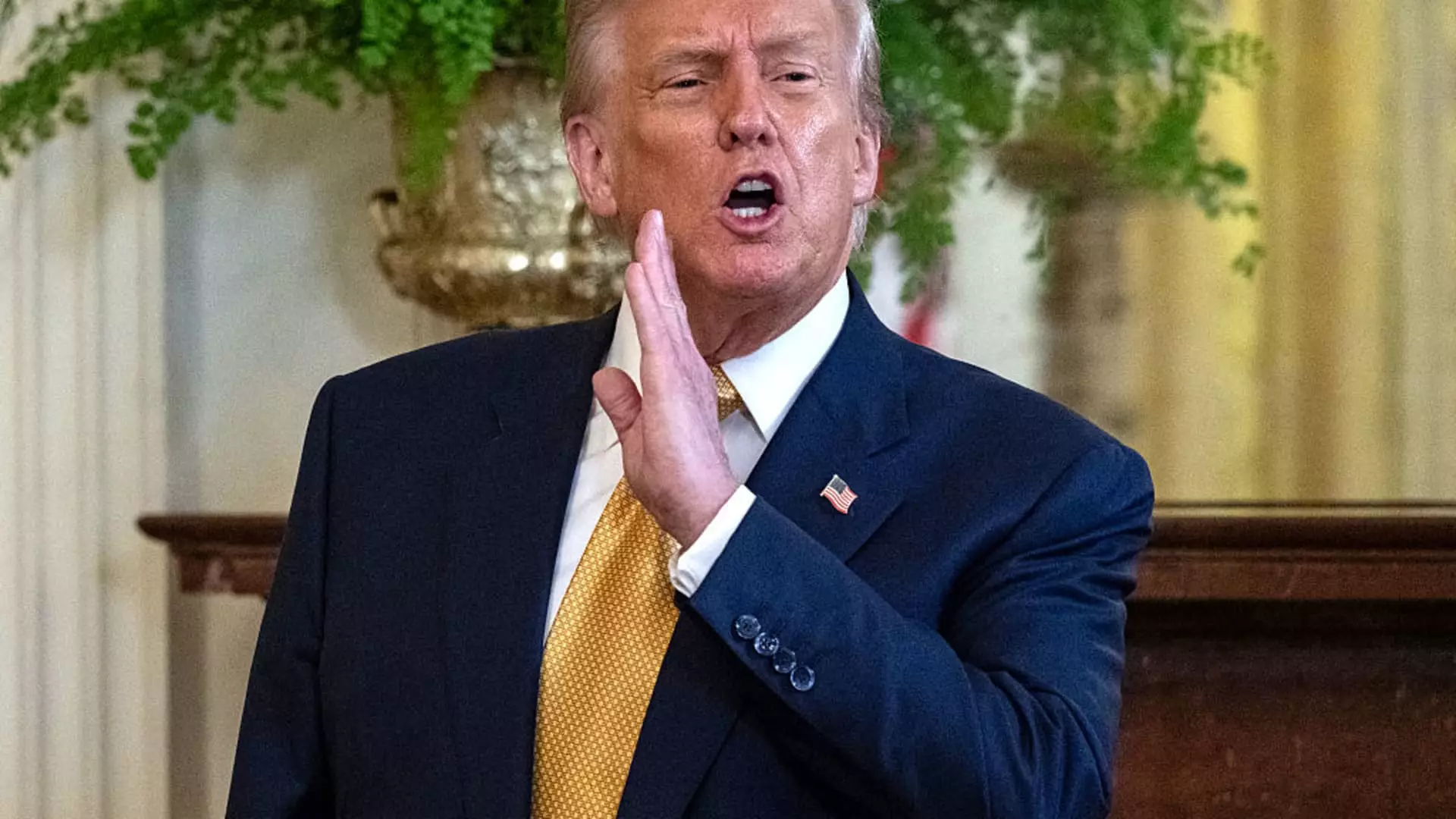In recent weeks, the landscape of international trade has become increasingly volatile, with the United States pivoting its attention toward negotiations with the European Union following a successful framework agreement with Japan. This strategic move reveals both a desire for economic leverage and a recognition of the complexities involved in reshaping global supply chains. However, the timing and manner of these negotiations are fraught with uncertainties that could undermine the very stability they aim to foster. While the U.S. administration portrays these talks as an avenue for mutual benefit, there is an underlying reality of increasing protectionist tendencies that threaten to unravel decades of transatlantic economic integration.
The U.S.’s aggressive approach underscores a broader tendency toward unilateral decision-making, emphasizing the imposition of tariffs as tools to negotiate from a position of strength. The looming threat of 30% tariffs on EU imports underscores a confrontational stance that risks sparking retaliatory measures, potentially spiraling into a trade war with far-reaching consequences. European officials have maintained that their primary objective remains a negotiated, cooperative outcome—yet the relentless pressure from the U.S. suggests that patience may be wearing thin. This hyper-focus on tariffs not only risks economic fallout but also underscores a fundamental disconnect: the larger question of whether these negotiations serve strategic diplomacy or mere economic brinksmanship.
The Promise of the Japan Deal—A Mirage or a Catalyst?
The recent U.S.-Japan trade agreement has sparked cautious optimism among experts, yet it remains a complicated precedent rather than a guaranteed pathway for success in EU negotiations. Japan’s auto tariffs, reduced from 25% to 15%, provide a tangible win for both nations but also highlight the narrow scope of what can be achieved without broader concessions. Economists like Katsuhiko Aiba suggest that this deal could influence future agreements, but the EU’s deep-seated economic interests and regulatory frameworks make any comparable pact far more nuanced.
Crucially, the auto sector—a linchpin for both the EU and the U.S.—becomes a focal point in this delicate dance. The potential for sector-specific exemptions or lower rates reflects a pragmatic understanding that economic integration is complex and segmented. But it also raises critical questions about fairness and reciprocity: will the EU be asked to make concessions that weaken its regulatory standards or compromise its environmental commitments? The risk is that these negotiations become zero-sum games, pushing Europe to accept concessions under pressure rather than fostering genuine consensus.
Geopolitical Tensions and the Broader Implications
Amidst these economic negotiations, broader geopolitical tensions are simmering, particularly regarding China and strategic alliances in Asia. The EU’s high-level meetings with Japanese leaders and its side discussions with China signal a recognition that global trade is no longer merely bilateral but interconnected with competing major powers. President Trump’s protectionist policies, which have sparked fears of economic nationalism, exacerbate these tensions by encouraging other nations to adopt similar stances, thereby fragmentation of the global trading system.
Europe finds itself caught in this maelstrom: it seeks to maintain open markets and uphold multilateral norms while responding to external pressures to adopt more aggressive trade policies. The EU’s stance seems to favor a balanced approach—asserting its economic interests without succumbing to the lure of protectionism. This is a pivotal moment for the EU to strategically assert its position, advocating for fair trade principles that protect workers, promote sustainable growth, and foster international cooperation. Nonetheless, it must resist the temptation to capitulate to the U.S.’s protectionist rhetoric, which risks hollowing out multilateral institutions in favor of short-term gains.
In this turbulent environment, the EU’s efforts in Asia and its diplomatic engagements reveal a nuanced understanding: economic resilience and political sovereignty require a consistent, principled stance rather than reactive concessions. Balancing relations with Japan, China, and the U.S. demands strategic patience and a firm commitment to fair, rules-based trade—an approach that, if managed wisely, could perhaps serve as a beacon of stability amid chaos. But neglecting these principles in favor of expedient deals risks sacrificing the EU’s longstanding pursuit of open and equitable global markets for fleeting gains.



Leave a Reply